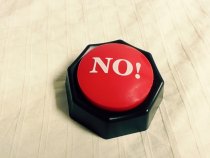
The Florida Board of Chiropractic Medicine recently found itself at the center of a contentious debate surrounding the practice of dry needling by chiropractors. The controversy began when the Florida Chiropractic Association (FCA) requested a Declaratory Ruling to determine whether dry needling falls within the scope of chiropractic practice in the state.
CLICK HERE for the history
The board's decision, which came during their November 9, 2023 Board Meeting resulted in a 4-2 vote against the FCA's request, has ignited a heated discussion within the chiropractic community.
The Initial Decision
The board's vote, which signaled that dry needling is not within the scope of chiropractic practice, should have brought closure to the matter. However, this decision did not sit well with Kim Driggers, the FCA's counsel and Board Member of the National Board of Chiropractic Examiners (NBCE).
CLICK HERE for more on Driggers
The FCA firmly believes that dry needling was already a legitimate part of chiropractic practice in Florida and has provided a flimsy legal argument that obviously does not stand up to serious scrutiny. This difference in interpretation of the law set the stage for further contention.
So contentious are the issues occurring on the Florida Board that during the last Board meeting in August when this issue was discussed Dale Mooney, the Executive Director of the Board warned Board members about back channel communications among board members admonishing them to:
"... use caution when talking about any information that is going to be on this or a future agenda of the board where two board members are meeting to discuss future actions of the board, that meeting must be publicly noticed and made available."
The Subsequent Developments
After the initial vote, the situation took an unexpected turn. The attorney representing the board advised that an additional motion was needed to officially declare dry needling as outside the chiropractic scope of practice. This recommendation led to a moment of desperation when Kim Driggers decided to withdraw the FCA's request for a declaratory ruling in an attempt at damage control. Following the withdrawal, the FCA promptly issued a press release claiming that the:
"Florida Board of Chiropractic Medicine failed to address the issue of whether dry needling is within the scope of practice for chiropractic physicians."
This statement raised eyebrows, especially considering the 4-2 vote against the FCA's request. Critics argue that this move by the FCA was an attempt to protect chiropractors like Michael Roberts, who continue to offer dry needling services despite the board's decision. Roberts, a board member and Past President of the Florida Chiropractic Association, has faced scrutiny for promoting dry needling on his practice's website - even after the recent vote.
CLICK HERE for more on Roberts
One aspect that adds complexity to the situation is the number of inquiries the FCA claimed to have received about dry needling. The FCA cited "numerous inquiries" from Florida chiropractors as the basis for its petition. However, records indicate that the FCA received only seven such requests, after the association's efforts to rally chiropractors on this issue.
The Broader Scope of Practice Debate
This dispute over dry needling is part of a larger debate within the Florida Board of Chiropractic Medicine regarding the expansion of the chiropractic scope of practice. Board member Anthony Oliverio DC revealed that this expansion includes injectables, muscle relaxers, steroid packs, dry needling, and trigger point injections. The discussion over these potential practice changes has been ongoing and contentious.
CLICK HERE for more on Oliverio's efforts to expand the scope
What's Next?
The board's decision to reject the FCA's request has left chiropractors and industry stakeholders with many unanswered questions. Will the board take further action to enforce its decision, particularly against chiropractors like Michael Roberts who continue to offer dry needling? Or will the board's actions reinforce the perception that the law does not apply to its members?
As the situation unfolds, chiropractors facing potential legal action are encouraged to inform their attorneys of these developments, potentially challenging what some perceive as unequal treatment within the chiropractic community by Active Market Players. The controversy surrounding dry needling in Florida is far from over, and its resolution may have significant implications for the chiropractic profession in the state.
